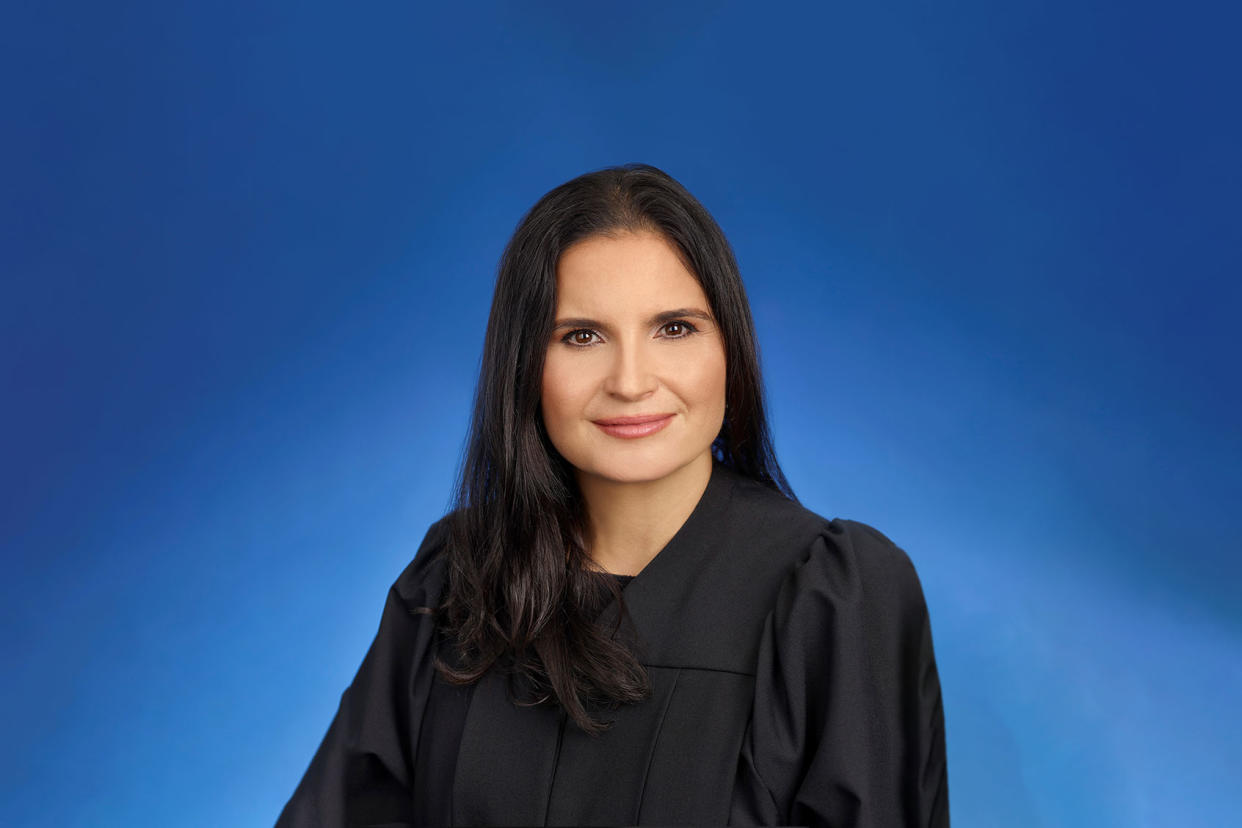"What if he stole Air Force One?": Supreme Court gives Cannon opening to further delay Trump case

- Oops!Something went wrong.Please try again later.
- Oops!Something went wrong.Please try again later.
- Oops!Something went wrong.Please try again later.
U.S. District Judge Aileen Cannon is what many in the legal community would call an "absolute hack”: an appointee of former President Donald Trump who, since being randomly assigned the presumptive Republican nominee’s classified documents case last year, has done nothing to rebut the charge that she’s totally in the tank for the criminal defendant. Indulging every legal argument from the defense, Cannon has diligently ruled — or held off on ruling — in ways that ensure voters will not see a trial, much less a verdict, any time before November.
But there are bigger "hacks" in the federal judiciary, some of whom have opinions that Cannon and other district judges cannot simply ignore. A half-dozen right-wing activists now sit on the Supreme Court, half of them also picked by the only former president to have been impeached twice, found liable for rape and then convicted of 30-plus felonies. In their last ruling of the summer, after eviscerating the administrative state and opening the door to criminalizing homelessness, those justices declared Trump to be practically beyond the reaches of the law, deeming him ineligible for prosecution over any act that a defense attorney could argue was loosely related to his “official” duties.
The ultimate arbiter of what’s official and out of bounds? The same six justices who issued a ruling they knew would upend every case against Trump; even his New York conviction is now in doubt, the sentencing delayed until September. One justice, Clarence Thomas, even used his opinion to challenge the ability of special counsel Jack Smith to even try to prosecute a case against Trump, claiming that decades of prior rulings are wrong and that the appointment of any special counsel is actually a crime against the U.S. Constitution.
When Cannon on Saturday ruled that the Supreme Court’s decision required delaying Trump’s case, then, there was not the usual degree of outrage from legal experts who know what they are talking about, at least not directed at Cannon herself. The New York Times reported that it would likely only cause “minor delays,” noting that the case had already “slowed to a crawl”
“I think there’s fair criticism with regard to what she has done with delaying previously,” criminal defense attorney Joey Jackson told CNN. Cannon took the most straightforward of the cases against Trump — that he took national security secrets and stashed them at Mar-a-Lago is not in doubt — and bogged it down by carefully considering every inane argument from the Trump legal team, ensuring even before the Supreme Court ruling that there would be no trial before the election, if ever.
Still, Jackson said, Cannon isn’t wrong to indulge the Trump team here and grant their latest request for a delay, citing the immunity decision’s potential impact. “As it relates to this specific case, I think it’s legitimate,” he said.
“This case was never going to be heard before the election anyway,” Dave Aronberg, state attorney for Palm Beach County, Florida, told MSNBC. He argued that Cannon, already deferential to the defense team, was given ample reason for further stalling by the nation’s highest court, with briefings on its immunity ruling now expected in her court by July 18. If the case survives after that date, it's possible that prosecutors could then present their evidence as to why it deserves to move forward at a sort of "mini trial" this fall.
All that's certain is that Cannon will be in no rush.
“She’s going to tread very carefully, but delay is her middle name,” Aronberg argued. That said, the question isn’t difficult: There’s no way that storing state secrets next to a toilet, as a private citizen, can be construed as part of an active president’s official duties.
Right? Well, the Trump team would argue: No, he packed up those documents while president, entitling him to do literally whatever he likes, from keeping them in the bathroom to handing them over to the Kingdom of Saudi Arabia. Whatever. As Justice Sonia Sotomayor wrote in her dissent: “Immune, immune, immune.”
“What if he stole Air Force One?” Aronberg asked. “He was allowed to use it while he was president. If he continued to use it after he left he would be arrested for it.”
Want a daily wrap-up of all the news and commentary Salon has to offer? Subscribe to our morning newsletter, Crash Course.
It would indeed be absurd. But why wouldn’t this Supreme Court allow it? Sure, Chief Justice John Roberts may not explicitly say that Donald J. Trump can steal state secrets and a plane too if he likes — why not all the gold at Fort Knox? — but he already co-signed the invention of an immunity doctrine nowhere to be found in history or text. By refusing to clearly define what is and is not an “official” act, Roberts has also ensured that he and his court’s conservative majority will be able to decide the question themselves on an ad hoc basis.
The problem for everyone, district judges included, is that it’s anyone’s guess just how far the Supreme Court is willing to take the whole “divine right of Trump” thing.
“I think the problem really is that there’s no way to be confident in any direction in any of these cases about what the effects are going to be,” Steve Vladeck, a law professor at the University of Texas, told New York Magazine. “It’s going to be a lot of uncertainty all the way down.”

